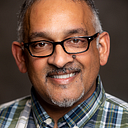Applying Archaic Math Assessment Ideas To Other Skills/Activities
To be honest, I think I’ve always found math tests to be an utter waste of time. Unless of course speed, correctness, and aping procedures is your jam. And, in 2017, championing the need to keep formal tests/exams is basically calling for a most puzzling return to the worst ideas about math education.
Assessment needs learning; learning doesn’t need assessment. My what a shiny carriage you have — you must have the Emperor of Education inside there in their birthday suit. Oh, but your horse looks emaciated — are you feeding it?
Maybe it’s hard to see the silliness of grades/testing because we associate familiarity with understanding/common sense — how can you teach math without measuring it? Its not the measurement which is an issue, it is the how…and why? Must you test everything? Is everything so valuable to you — to your students? Do you really need that third trigonometry problem on the test? Do you really need to put so many questions on the test that half the class requests more time — and then you get puzzled why your students are struggling?
If you are not going to be creative with your assessment techniques, at least give your students retake options that well, you know, kind of mirror the real world of mastery/accomplishment.
Imagine going to a cooking class and being evaluated on your culinary dish. You get a critique of your risotto saying it is sub-standard. You make it again. It’s sublime. Your final assessment of your ability is…the average(what the hell does that mean) of the two attempts? I mean isn’t your most recent effort a bloody status update of your cooking skills! Correct math assessment works the same way. Here is Matthew Beyranevand’s article nailing it.
The biggest joke however in math assessment — and most final assessments — is the final exam. The final exam violates so much which is common sense — it even violates its own measurement taking ideas! The final exam is usually around 25 to 30% of the final mark and written over 1.5 to 2 hr span. Soooooo…the first 70 to 75% was evaluated over a healthy interval of 9 months and now kids get to finish the remaining percentage points in a time frame that is over 3000 times faster — and it is the same bloody, stupid material! And, if a student has completed three-quarters of the evaluation, don’t we kind of know where they stand? How much more data/evidence do you need to label a student’s understanding — which is only faulty statistics. Any mark will probably have a margin of error of +/- 7 to 10%, and yet we waste so much time trying to turn assessment into some impossible activity of reliability/precision. So much time wasted…
Imagine you take swimming lessons. You get a report on all the skills you have mastered and the ones that need improvement. You are about to take it when the instructor takes it back and says you will need to come to the pool next week. The instructor says that while the 70 hours you have spent in the pool has given valuable feedback, you will have to perform many of the mastered swimming skills/strokes again. The only thing is that you will only be the pool for 90 seconds. What you do in that time will have a moderate impact on your final swimming report.
While the attitudes/ideas are changing towards “less is more”, there is still a culture of laboring over assessment rituals/techniques to the point where it runs serious miscalculation of the whole point of learning math — and learning in general — is for human flourishing. Do you think I have stopped learning since I left school — because nobody has asked me write a report or a quiz? We know that testing is simply a societal tool to measure things of debatable value, separate, label, and prepare kids for more unexplained test-taking in the future.
David Martin, a creative and courageous high school math teacher in Alberta, hit it out-of-the-park with his healthier and more reflective way of looking at assessment.
Giving a student a mark like 77.8 over a blitzkrieg of quizzes, tests, assignments and exams — and being married to a statistically meaningless result — just points the learning of mathematics in the wrong direction.
To meaningless, ritualized and institutionalized anachronisms.
Imagine you are in art class and you get a mark of 77.8…
We need more evidence/data/testing/research? Really. Then turn the teaching profession over to robots, cyborgs or the folks from Research Ed — and let us humans carry on with learning/teaching that takes care of the starving horse.
You can keep the broken cart — that we smashed.
________________________________________________________________
Mathematics Learning Specialist, Scolab
Author, Pi of Life: The Hidden Happiness of Mathematics

